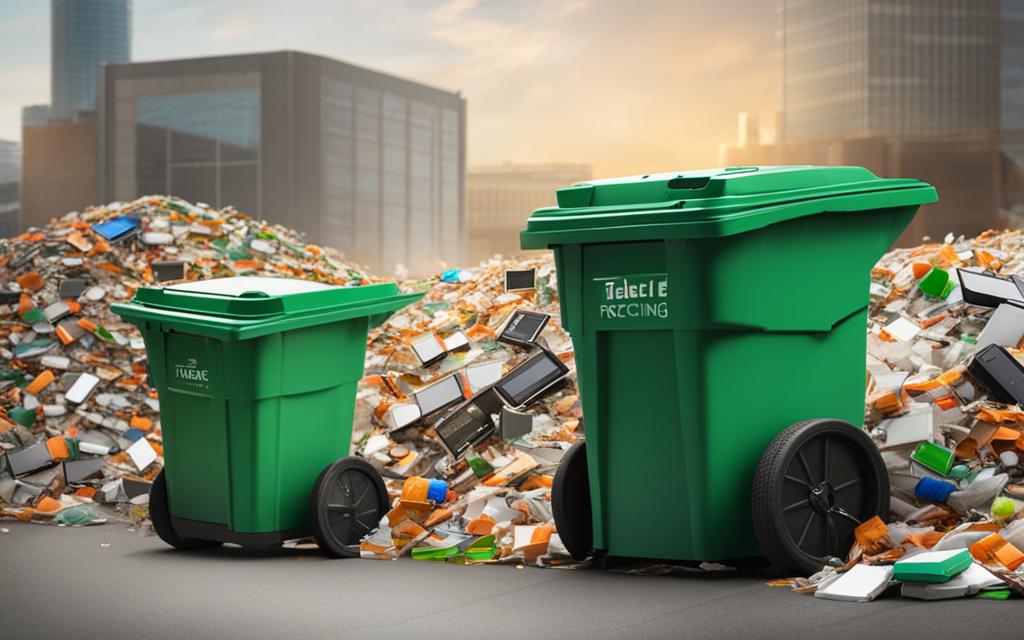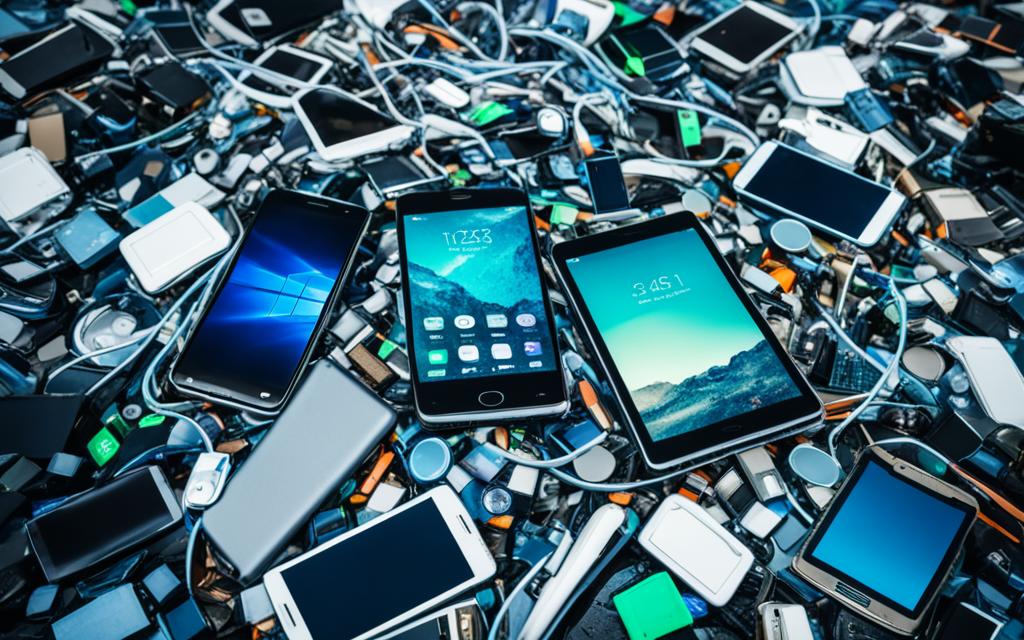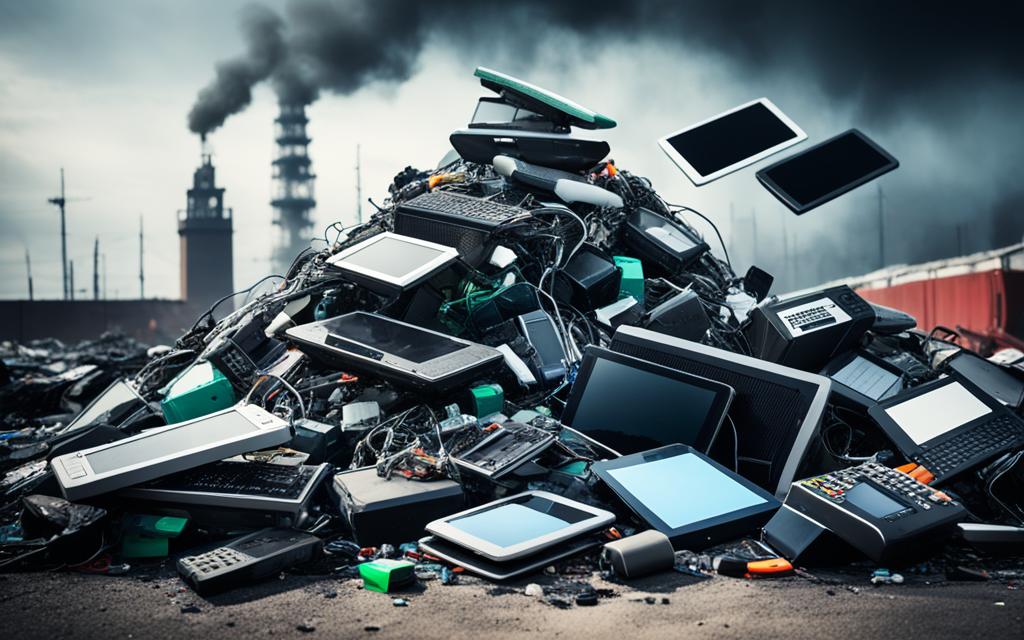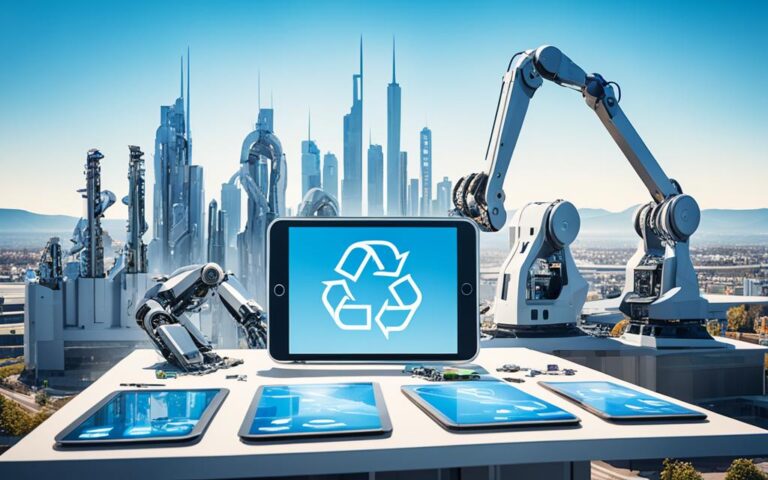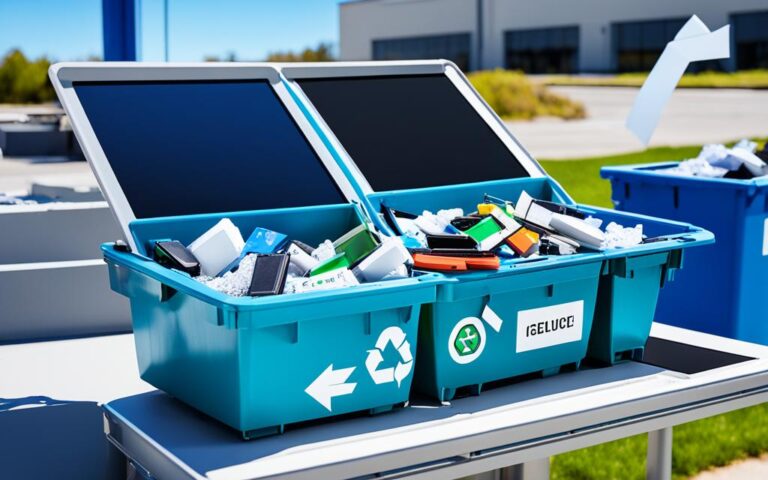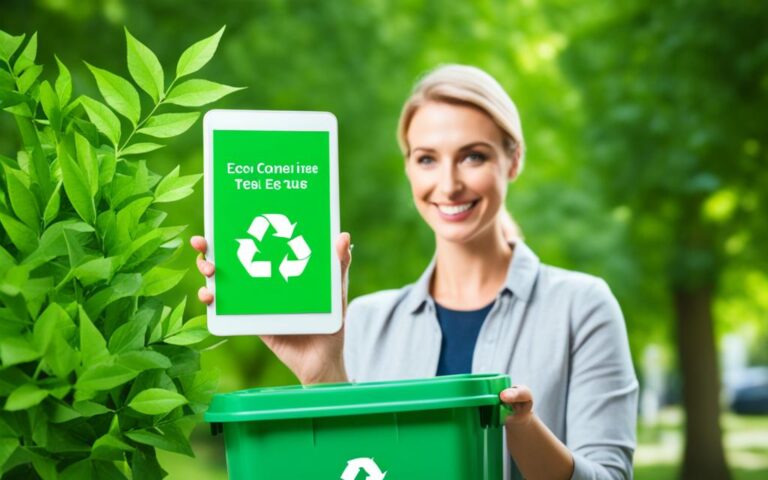The Health Risks of E-Waste and How Phone and Tablet Recycling Helps
Did you know that electronic waste, or e-waste, poses significant health risks to the environment and human health? When improperly disposed of, electronic devices release toxic substances such as lead and mercury, contaminating our soil, water sources, and even the air we breathe. These toxins can have detrimental effects on both wildlife and human health, leading to respiratory issues and heavy-metal poisoning.
With an estimated 20 to 50 million tons of e-waste generated worldwide each year, it is alarming to know that only 15-20 percent is currently being recycled. This highlights the urgent need for proper recycling practices to mitigate the health risks associated with e-waste. Fortunately, recycling smartphones, tablets, and other gadgets not only helps conserve energy and natural resources but also prevents air and water pollution. By recycling these devices, we can take crucial steps towards creating a healthier planet for future generations.
The Environmental Impact of E-Waste
E-waste has a significant environmental impact due to the toxic substances contained in electronic devices. When e-waste is deposited in landfills, the materials used in these devices, such as lead and mercury, can leach into the soil and groundwater, contaminating the environment and posing risks to both land and sea animals. Additionally, e-waste can contribute to air pollution when devices containing harmful chemicals are incinerated. Studies have even linked e-waste in landfills to respiratory issues in humans.
The sheer volume of e-waste generated is also a concern, with estimates of 20 to 50 million tons produced worldwide each year. Currently, only 15-20 percent of e-waste is being recycled, highlighting the need for increased recycling efforts to reduce the environmental impact of e-waste.
The Health Risks of E-Waste Exposure
Exposure to e-waste carries significant health risks, particularly for vulnerable populations such as children and pregnant women. E-waste contains toxic substances that can be released into the environment if the devices are not disposed of properly. These toxicants can have detrimental effects on human health, including adverse neonatal outcomes, neurodevelopmental issues, and respiratory problems.
“The health impact of e-waste exposure is a serious concern, especially for children and pregnant women. The toxic substances present in e-waste can lead to long-term health issues and developmental problems.” – Dr. Emma Collins, Environmental Health Specialist
Studies have shown a clear link between e-waste exposure and increased rates of stillbirth, premature birth, and learning and behavior problems in children. Pregnant women and children are particularly vulnerable to hazardous pollutants released during informal e-waste recycling activities. In many parts of the world, children are involved in waste picking and dismantling electronics, putting them at high risk of exposure to hazardous chemicals. Shockingly, millions of women and child laborers in the informal recycling sector worldwide are at risk of e-waste exposure.
Serious Health Consequences
The consequences of e-waste exposure can be severe. Pregnant women who come into contact with hazardous chemicals during e-waste recycling may experience complications such as preterm labor, low birth weight, and developmental abnormalities in their babies. Children exposed to e-waste toxins may suffer from respiratory problems, impaired cognitive function, and behavioral disorders.
In a study conducted in a region with high e-waste exposure, researchers found elevated levels of lead and cadmium in children’s blood samples, indicating heavy-metal poisoning. These toxic substances can impair the functioning of vital organs, such as the kidneys and liver, and have long-term detrimental effects on overall health.
E-Waste exposure also poses risks to respiratory health. Chemicals released from improperly disposed e-waste can contaminate the air, leading to the development or aggravation of respiratory conditions such as asthma and bronchitis.
It is crucial to raise awareness about the health risks associated with e-waste exposure and promote proper disposal and recycling practices to safeguard the well-being of individuals and communities around the world.
Through responsible e-waste management, we can protect vulnerable populations and create a healthier future. Let’s work together to ensure that e-waste is properly recycled and disposed of, reducing the health risks and environmental impact that come with improper handling.
The Importance of E-Waste Recycling
Recycling e-waste is crucial in mitigating the health risks associated with improper disposal of electronic devices. By recycling old phones, tablets, and other gadgets, valuable resources like copper, silver, and aluminum can be reused, reducing the need for mining new supplies of these materials. This not only helps conserve natural resources but also decreases the environmental impact of mining and extraction processes.
Furthermore, e-waste recycling plays a vital role in conserving energy and water. The process of extracting raw materials and manufacturing electronic devices consumes significant amounts of energy and water resources. By recycling e-waste, we can help reduce the energy and water consumption required for producing new electronics, resulting in a more sustainable use of these valuable resources.
Proper e-waste recycling also prevents the release of toxic chemicals into the environment, safeguarding the health of both humans and wildlife. When electronic devices are disposed of in landfills, harmful substances like lead, mercury, and flame retardants can leach into the soil, water sources, and the atmosphere. These toxic substances can have long-lasting effects on ecosystems and pose risks to human health through contaminated drinking water and air pollution.
It is estimated that only 15-20 percent of all e-waste is currently being recycled. This low recycling rate highlights the need for increased efforts to raise awareness about the importance of e-waste recycling and improve recycling infrastructure. By educating individuals and businesses about the benefits of recycling and providing accessible recycling options, we can significantly reduce the environmental impact of e-waste and protect our planet for future generations.
The Environmental Benefits of E-Waste Recycling
E-waste recycling offers numerous environmental benefits. Here are some key advantages:
- Conserving Natural Resources: Recycling electronic devices allows us to recover valuable materials like metals, plastics, and glass, reducing the reliance on mining and extraction. This conserves natural resources and reduces the environmental impact of raw material extraction.
- Reducing Energy Consumption: Producing new electronic devices from raw materials requires significant amounts of energy. By recycling e-waste, we can save energy that would otherwise be used in the extraction, refining, and manufacturing processes.
- Preventing Pollution: Improper disposal of e-waste can lead to pollution of air, water, and soil. Recycling helps prevent the release of hazardous chemicals, such as heavy metals and toxic flame retardants, into the environment, reducing pollution and its associated health risks.
- Limiting Landfill Space: E-waste takes up valuable landfill space and contributes to the growing issue of overflowing landfills. By recycling electronic devices, we can reduce the amount of e-waste sent to landfills and extend their lifespan.
By recognizing the importance of e-waste recycling and taking action to responsibly dispose of our electronic devices, we can make a significant positive impact on the environment and protect the health of our planet.
Benefits of Phone and Tablet Recycling
When it comes to phone and tablet recycling, the benefits extend far beyond reducing the health risks associated with e-waste. By participating in recycling programs, individuals can make a positive impact on the environment while potentially reaping tangible rewards.
1. Incentives from Companies
Many companies offer enticing incentives for recycling old devices. These can range from cash rewards and store credits to donations made to charity organizations on behalf of the individual. Recycling your phone or tablet not only helps the environment but can also provide you with some financial or goodwill benefits.
2. Secure Destruction of Sensitive Information
When you recycle your devices, you can rest assured that any sensitive information stored on them will be securely destroyed. This eliminates the risk of your personal data falling into the wrong hands and protects your privacy. It’s a responsible and secure way to dispose of your old devices.
3. Conservation of Natural Resources
Recycling electronics like phones and tablets helps conserve natural resources. By reusing valuable materials such as copper, silver, and aluminum found in these devices, the need for mining and extracting new resources is reduced. This contributes to the preservation of our planet’s finite resources and helps maintain a sustainable future.
4. Reduction in Energy Consumption
The production of new electronics requires a significant amount of energy. By recycling phones and tablets, we can reduce the demand for new device manufacturing, subsequently lowering energy consumption. This not only helps to conserve energy but also reduces greenhouse gas emissions, leading to a cleaner and healthier environment.
5. Combating Air and Water Pollution
Recycling electronics plays a crucial role in combating air and water pollution caused by the production of new devices. The manufacturing process releases harmful pollutants into the environment. By recycling and reusing materials, we can minimize the need for new production, thus reducing pollution levels and improving the quality of the air we breathe and the water we consume.
“Recycling turns things into other things, which is like magic.”
Participating in phone and tablet recycling programs not only helps protect the environment and reduce the health risks of e-waste but also offers you the opportunity to benefit personally. It’s a win-win situation. So, start recycling your old devices today and be a part of the positive change!
| Benefits | Phone and Tablet Recycling |
|---|---|
| Incentives from Companies | Companies offer cash rewards, store credits, or donations to charity organizations |
| Secure Destruction of Sensitive Information | Recycling ensures secure destruction of personal data |
| Conservation of Natural Resources | Reusing valuable materials reduces the need for new resource extraction |
| Reduction in Energy Consumption | Recycling reduces the demand for new device manufacturing, saving energy |
| Combating Air and Water Pollution | Recycling minimizes pollution caused by the production of new electronics |
Conclusion
E-waste poses significant health risks to the environment and human health due to the toxic substances contained in electronic devices. The improper disposal of electronic waste can lead to the release of harmful chemicals, contaminating soil, water sources, and the air. This can cause various health problems, including respiratory issues and heavy-metal poisoning. To combat these risks and protect our planet, phone and tablet recycling is crucial.
By properly recycling electronic devices, we can reduce the environmental impact of e-waste and promote a healthier planet. Recycling old phones and tablets allows for the reuse of valuable resources like copper, silver, and aluminum, thus reducing the need for mining new materials. Moreover, recycling conserves energy, water, and reduces pollution, which is essential for safeguarding the environment and minimizing the health risks associated with e-waste.
Despite the importance of e-waste recycling, the current recycling rate is relatively low. It is vital to increase recycling efforts to ensure that more electronic devices are properly disposed of and recycled. By actively participating in phone and tablet recycling programs, individuals can make a significant difference. Not only does it contribute to mitigating the health risks of e-waste, but it also promotes sustainable practices for electronic device disposal, creating a healthier and more sustainable future for all.
FAQ
What are the health risks of improper disposal of electronic waste (e-waste)?
Improper disposal of e-waste can release toxic substances such as lead and mercury, which can contaminate the environment and pose risks to human health. These toxins can cause respiratory issues and heavy-metal poisoning.
What is the environmental impact of e-waste?
E-waste deposited in landfills can lead to soil and groundwater contamination, posing risks to land and sea animals. Incineration of e-waste can contribute to air pollution. Studies have also linked e-waste in landfills to respiratory issues in humans.
What health risks are associated with e-waste exposure?
Exposure to e-waste can have severe health consequences, particularly for vulnerable populations, such as children and pregnant women. It can lead to adverse neonatal outcomes, neurodevelopmental issues, and respiratory problems.
Why is e-waste recycling important?
E-waste recycling is crucial in reducing the health risks associated with improper disposal. It helps conserve resources, reduce energy consumption, and prevent the release of toxic chemicals into the environment.
What are the benefits of recycling phones and tablets?
Recycling old phones and tablets not only reduces the health risks of e-waste but also offers incentives such as cash rewards, store credits, or donations to charity organizations. It helps conserve natural resources, reduces energy consumption, and combats air and water pollution.



